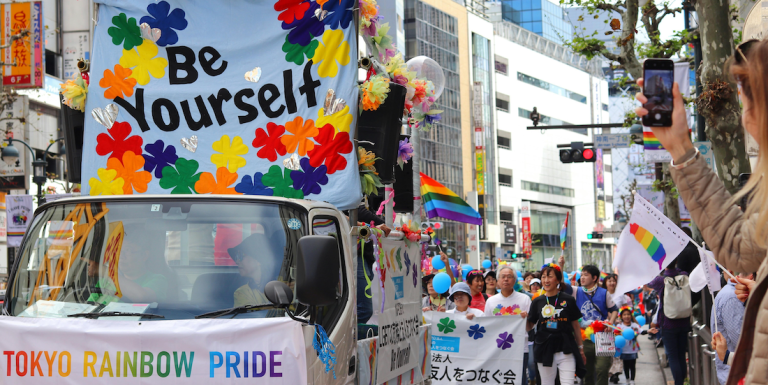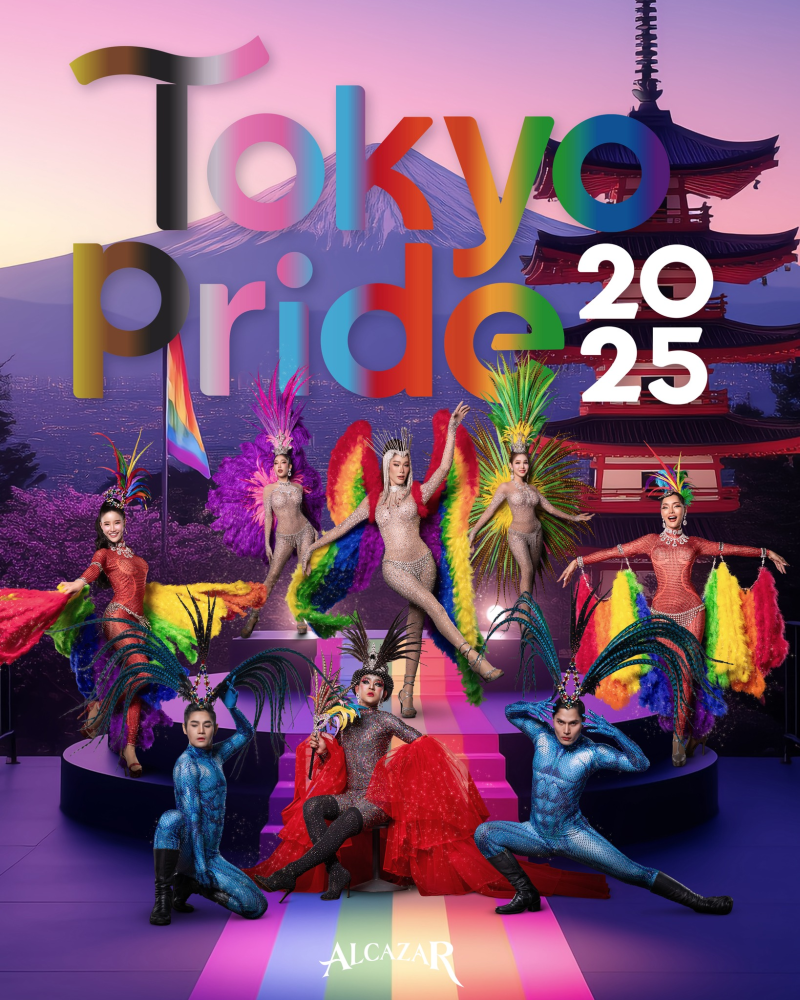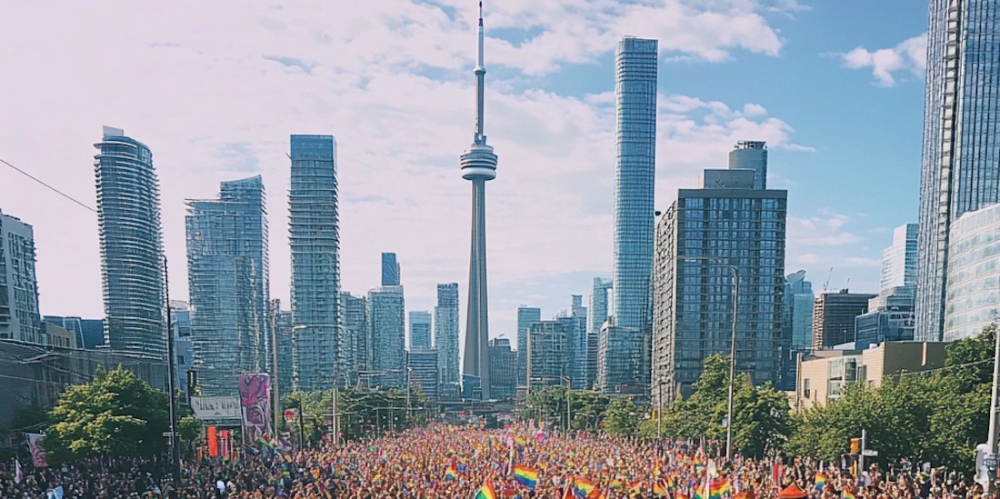
Record crowds celebrate diversity and demand equality under “Same Life, Same Rights” theme
Tokyo — The core events unfolded at Yoyogi Park on June 7–8, where 180+ booths transformed the Event Plaza into a microcosm of Japan’s evolving LGBTQ+ landscape. Universities like Ryukoku University conducted real-time sentiment surveys, categorizing public attitudes into “expectation, anxiety, and anger.”
Meanwhile, corporate giants (Panasonic, Spotify, and Salesforce) showcased DEI initiatives through interactive experiences like photo booths and HIV education campaigns. The festival’s infrastructure prioritized inclusivity, featuring wheelchair-accessible changing beds, a dedicated kids’ space, and multilingual support.
This is believed to be Asia’s largest Pride celebration.

Festival and Parade: Dual Engines of Visibility
On June 8, the Pride Parade marched through Shibuya and Harajuku with 7,000+ participants, stretching 3 km beneath banners declaring “Same Life, Same Rights.”
Formerly known as Tokyo Rainbow Pride, the rebranded event aligned with global Pride Month observances for greater international solidarity.
Performances challenged traditional norms, such as ballroom dancing by same-sex couples redefining gendered art forms.
Corporate Allyship and Community Initiatives
Business engagement reached unprecedented levels, with 52+ companies sponsoring booths.
Robert Walters Japan surveyed attendees about workplace inclusivity, distributing branded merchandise, while HOTEL GROOVE SHINJUKU launched “ally hotel” initiatives—including rainbow-lit facades and LGBTQ+-themed menus (e.g., rainbow donuts and cocktails).

Pharmaceutical leaders like ViiV Healthcare and Gilead Sciences integrated public health advocacy, offering HIV testing resources and PrEP education.
Art and Nightlife: Cultural Resistance
Beyond the daytime events, Pride Month featured auxiliary cultural programming.
The Queer Art Exhibition at Tokyu Plaza Harajuku displayed photography and sculptures until June 18, inviting public votes for standout artists.
Nightlife surged in Shinjuku’s Ni-chōme district, where clubs like AiSOTOPE Lounge hosted ticketed Pride Night parties.
ZEROTOKYO nightclub amplified visibility with the AGARTHA event on June 7, leveraging Japan’s largest dance floor for queer celebration.
Impact and Challenges Ahead
The event drew 270,000 attendees—a record underscoring growing public support.
Yet participant testimonials revealed persistent tensions: one noted the “sensitivity” of LGBTQ+ issues in Japan despite the festival’s “fun” approach.
Political demands remained central, with NPO Tokyo Rainbow Pride organizing a Human Rights Conference on June 22 to address legal gaps like same-sex marriage bans.
Tokyo Pride 2025 Amplifies Visibility, Rights for Japan’s LGBTQ+ (June 11, 2025)

Audio Summary (75 words)
Tokyo Pride 2025 drew record crowds to Yoyogi Park, uniting 180+ groups under the theme “Same Life, Same Rights.” Highlights included corporate DEI showcases, a 3-km parade through Shibuya, and Ryukoku University’s emotion-mapping survey. Nightlife and art exhibitions extended the celebration, while ally hotels like GROOVE SHINJUKU lit up in rainbow colors. Despite progress, organizers emphasized ongoing challenges—Japan still lacks marriage equality and anti-discrimination laws.